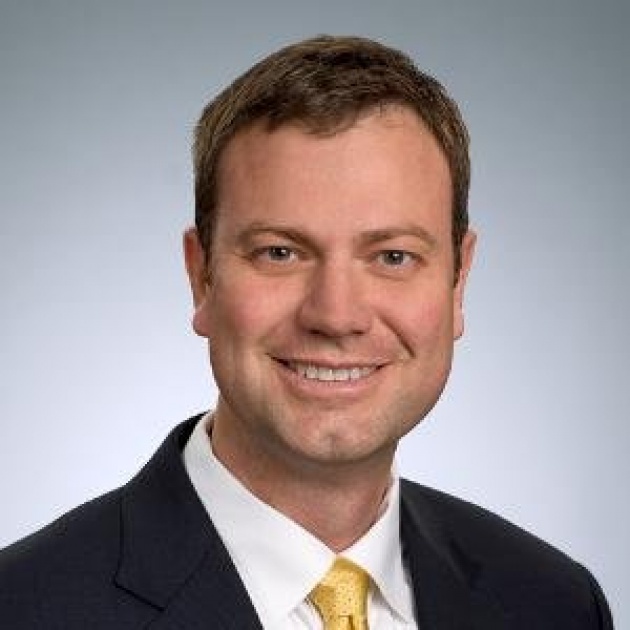
Mr.David Cooper is the Chief Executive Officer of Anglicotech LLC, a service disabled veteran-owned small business that specializes in knowledge management and systems integration. Mr. Cooper served for over twelve years on active duty in the Marine Corps as an Infantry Officer, and four years in the reserve. Below is an interview of him about Afghanistan, Central and South Asia.

FA: Please tell us about yourself and your background.
DC: I have a passion for innovation and problem solving. I feel both creative and pragmatic at the same time. That may be a result of my parents being so different; one a psychologist and one a government Civil Servant. Certainly growing up in the South (Georgia) coupled with over 13 years in the US Marine Corps have made an impression as well. I am also well-traveled, though there are many places that I have yet to see. I think travel makes one inquisitive and more understanding of other cultures.
FA: Please tell us about Anglicotech LLC and the philosophy behind it.
DC: Anglicotech is about solving important problems with the help of technology. Technological innovation today moves extremely fast. Part of this evolution is because the tools of innovation have become so accessible by the average person. Globalization also plays a big part in this. Think of the tremendous computing power in your smartphone. Think of the information the average person has access to in the palm of their hand. What are the implications of that?
At Anglicotech, we want to apply that cutting edge of technology and innovation to problems of national importance such as defense, education, and energy. We want to attract a team of people that are creative, diverse, and most importantly understand that technology alone can not solve problems. The most effective solutions consider the integration of people, technology, and their processes.
FA: What do you look for in the projects and partners you work with?
DC: The most important thing in evaluating a project is asking ourselves, “Can we contribute to this project? What do we bring to the table?” I ask the same thing of potential partners. The projects that I really enjoy solve significant problems. As I mentioned, projects that involve national security, education, and energy are very attractive. I also like dealing with projects and partners that are involved in ground breaking technologies such as nano-technology or renewable energy. Finally, reputation in business is critical and can not be easily restored once lost. Therefore, the partners that we deal with must have integrity and an honest spirit of teamwork.
FA: Anglicotech LLC is a Veteran owned business, did this contribute to the leadership of your company?
DC: Very much so. I tell folks that I was never formally trained to be a CEO. However, the Marine Corps taught me great leadership and management skills. The hands on experiences that I had in the Corps forged a great foundation that can be felt within Anglicotech. We try to set clear goals with our leaders and then empower them to accomplish their objectives. I think this has been responsible for the tremendous growth that we have experienced at Anglicotech.
FA: Where do you see the future of developing countries like Afghanistan?
DC: The future is bright for developing countries if basic structural components of the country are in place to foster growth. Any successful country must have the stability that encourages investment. That stability rests in the rule of law, security, property rights, and responsible fiscal and monetary policies. Global investors clearly recognize the higher returns offered by developing countries. Citizens must acknowledge that they have a role in attracting foreign investment, primarily through creating stability.
I have high hopes for Afghanistan in particular. With mineral resources and a strategic geographic position, Afghanistan could truly benefit from global investment. The basic ingredients are in place. However, there is still much uncertainty about the future. This could delay growth and ultimately risk not meeting the full potential of Afghanistan. The key for the Afghan government will be to set a stable economic environment while balancing a traditionally conservative culture. I think it can be done, but it will certainly require patience, understanding, and commitment.
FA: Do you think System integration and knowledge management can help improve their economy and education system?
DC: I feel very strongly that information sharing and knowledge management can help strengthen Governance. The virtual fabric of information can help tie together a very dispersed economy and unite disparate efforts. This can be especially empowering in health care and education. Knowledge sharing can help people in rural areas gain access to the best in 21st century medicine, agricultural techniques, education, and culture. All of these things help set the basic infrastructure from which a strong economy can flourish.
FA: What do you think about Afghan veterans?
DC: To begin, I thank every veteran for their service. I consider the fact that someone volunteers for service to be a gift to the nation. We have to ensure that we use this gift sparingly and for good cause. Afghan veterans should be proud of a job well done. While the future of Afghanistan is uncertain, the importance and success of their service and sacrifice is not.
FA: What would be a good applicable example for them to follow?
DC: I think there are plenty of good role models. The World War II generation as a whole stands out as a good example of humble selflessness. Individuals such as Senator Max Clealand of Georgia and Senator John McCain of Arizona also stand out as good examples of achieving great accomplishments after severe experiences in war.
Here beside Mr.Cooper interview, I would like to introduce Jonathan Weinkiper Web TV, who presents his experience as a U.S. Marine while he was in Afghanistan.
In this case the most important thing that how Afghan veterans should find opportunities in Afghanistan for peace keeping and also economical growth. They can act as an Entrepreneur and use what they have experienced during their service.



